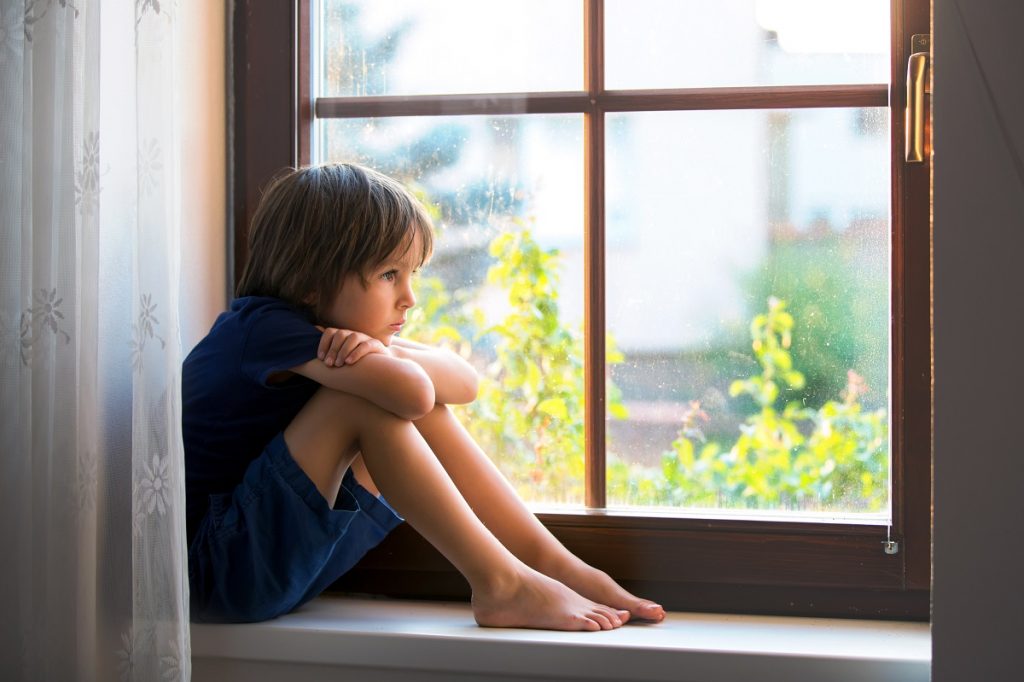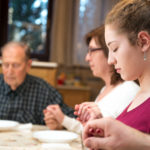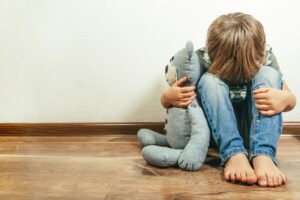Elle Magazine recently released a video of an eight-year-old drag queen who calls himself “Lactatia.” The viral video features a young boy wearing dresses, wigs, and copious amounts of makeup. It praises his exuberant fascination with drag and his courage in choosing to live his life as a girl.
When I see this boy, I see myself. I see what could have happened to me if I had been born a decade or so later. And I wish I could warn him of the dangers that lie down that road.
My Grandma and Me
When I was eight years old, I too wanted to be a girl. I was utterly fascinated with all aspects of femininity. To me, my grandmother was the manifestation of femininity—stylish, sophisticated, and incredibly beautiful. She loved jewelry and makeup, and she never left the house in a less than perfect state of appearance. For nine years, my father and I lived next door to her, and she raised me. When I was eight, she was my entire world.
Start your day with Public Discourse
Sign up and get our daily essays sent straight to your inbox.My father was in his early twenties when I was born. Divorce left him a single father, holding down two jobs as he tried his best to raise me. He struggled with my feminine impulses, always trying to push me toward sports and male friends and discouraging my grandmother’s influence. But in the end, I don’t think he knew quite what to do. I was depressed and lonely, and I had great difficulty connecting with other kids. Being around my grandmother made me happy.
I remember her testing hair dye on me by streaking my hair first to see how it would turn out. She always wanted me to be a little more blonde, but my red hair grew darker every year. She would paint my fingernails when she painted hers, only to remove the color before I went home at the end of the evening. We played with a doll house together and did endless crafts. She loved watching me run around her walk-in closet picking out the various accessories to her many colorful outfits.
I can remember fantasizing about what it would be like to wake up as a girl. I imagined it would make my grandmother happy, as she obviously wished I was a girl. I figured it would be easier to fit in at school, too. All of my friends were girls, and I was constantly being lectured by teachers to play with the boys. If I were like all the other girls in my class, maybe the boys would stop being so mean to me and finally accept me. It all just seemed to make sense to me.
Gender Dysphoria, Hyper-Masculinity, and Risky Sex
As I grew older, my feeling of being displaced in my body began to manifest itself in the opposite direction. I became obsessed with everything hyper-masculine I could find. I read comic books, subscribed to bodybuilding magazines, and watched sports, always trying to find some secret key to being a man. I wanted men to like me, and I figured these resources might be able to show me how to act in order to achieve that goal. I was always awkward and shy around other boys and men, and they would either ignore me or make fun of me.
As I moved into puberty, this fixation on the extremes of sexuality evolved into sexual arousal. I became sexually attracted to men, and I harbored a lingering longing to be female. As my obsession with masculinity grew into sexual fetishism, I became more and more adventurous, seeking out older boys to ask about this mysterious sexual world I only saw hinted at in magazines and on TV. This led to my engaging in sexual behavior with several male peers, all in their early teens. By age fourteen, I was hanging out in the basement bathroom at the library of the college campus where my father worked, engaging in anonymous sex with strangers. I experimented with drag and took on feminine sexual roles. My entire sense of self revolved around my sexuality and my sense of being “wrong” in my body.
My behavior grew more and more reckless. I even made plans with a stranger I met online who lived in California. He was supposed to rescue me from my small town on the day I graduated from high school. He actually flew into town to attend my graduation, and I discovered he had lied about his appearance, age, and practically everything else. The level of danger that I casually put myself into boggles my mind today. I am genuinely lucky not to have been killed.
All of this occurred in secret. I never spoke about my activities to anyone. Since my father trusted me to take care of myself, no one ever asked. My paranoia about others finding out, my embarrassment and shame over my sexual behavior, and my ongoing focus on radically changing my life the moment I had the chance left me anxious, extremely depressed, and disconnected from my family. It was only because a few significant life events forced me to stay put—my grandfather passed away a few days before my eighteenth birthday, and I moved in with my dad to care for him—that I was saved from running off, becoming homeless, a sex worker, or worse.
The Dangers of Sexualizing Children
I share this experience because it is absolutely vital to understand the impact that early sexualization has on children. The statistics are staggering.
Early sexual behavior increases the risk of sexual violence, both by young persons and against them. Young people between the ages of thirteen and twenty-four made up 22 percent of all new HIV cases in 2015. According to the CDC, “Studies conducted among teens have identified an association between substance use and sexual risk behaviors such as ever having sex, having multiple sex partners, not using a condom, and pregnancy before the age of 15.”
LGBT teens are also at risk of becoming homeless and becoming involved in prostitution. Unfortunately, some LGBT activists actually encourage this choice. Janet Mock, a trans woman and sex worker advocate who helped organize the Women’s March in 2016, fondly remembers leaving school at fifteen years old and traveling to a known area of transgender sex workers to learn the trade. Praising the adult men portraying themselves as women for prostitution, Mock writes:
These women taught me that nothing was wrong with me or my body and that if I wanted they would show me the way, and it was this underground railroad of resources created by low-income, marginalized women, that enabled me when I was 16 to jump in a car with my first regular and choose a pathway to my survival and liberation.
As Mark Regnerus has pointed out, within the academy, some scholars are working to erase the taboo around adults having sex with minors. This is clearly taking place on a broader cultural level as well. The first season of the TV show Queer as Folk featured a storyline in which a seventeen-year-old high school boy leaves his family to move in with a twenty-nine-year-old man he met at a gay bar. Similarly, a highly anticipated 2017 movie titled Call Me by Your Name portrays a sexual love story between a seventeen-year-old boy and a twenty-four–year-old man.
Meanwhile, children like “Lactatia” are being pushed to cross-dress in sexually provocative ways and to embrace a trans identity at younger and younger ages. National Geographic famously featured a nine-year-old boy dressed as a girl in 2016 as well.
It seems the Left has fully embraced the sexualization of children—with their parents’ approval. We know what happens to young people who engage in these activities behind their parents’ backs, but what happens when your mother actively encourages you? I fear this boy, fixated on a sexual persona and encouraged by media and activists, will never truly experience childhood. He will experiment with dangerous sexual activity at a young age. If he is exposed to drag culture in his very early teens, he will see drugs, alcohol, and anonymous sex as part of the culture he is told he belongs to.
Standing Up for Children
The Left celebrates its own sense of progressive insight and holds “Lactatia” up as a trophy of their enlightenment. But where will these activists be when he drops out of high school or becomes addicted to drugs? How will he ever know who he is when his identity is so wrapped up in the ideological agenda of a movement eager to exploit him for the sake of a political narrative?
Our culture has become so overwhelmed by the voices of sexual minorities that the average person feels helpless to speak up for fear of giving offense. As someone who belongs to that minority, I know it is absolutely necessary that you do speak up.
It didn’t occur to anyone to ask me why I felt the way I did as a child. We must learn to notice depression or anxiety in children as an extreme warning sign—and then to act on it. Activists today would argue that had I been encouraged to be “myself,” I wouldn’t have experienced this level of depression. But that simply isn’t true. My gender dysphoria was a symptom of a larger issue. Today, many want to turn psychological symptoms into an identity. In truth, what I needed was help understanding and overcoming my social anxiety. I needed tools to build healthy, lasting friendships. I needed exposure to masculine environments and strong male leaders. I needed to understand my own masculinity rather than fantasize about a feminine ideal.
Unfortunately, without a dramatic change in our culture, no child experiencing what I did will have that opportunity. We must stand up for them before it is too late.













